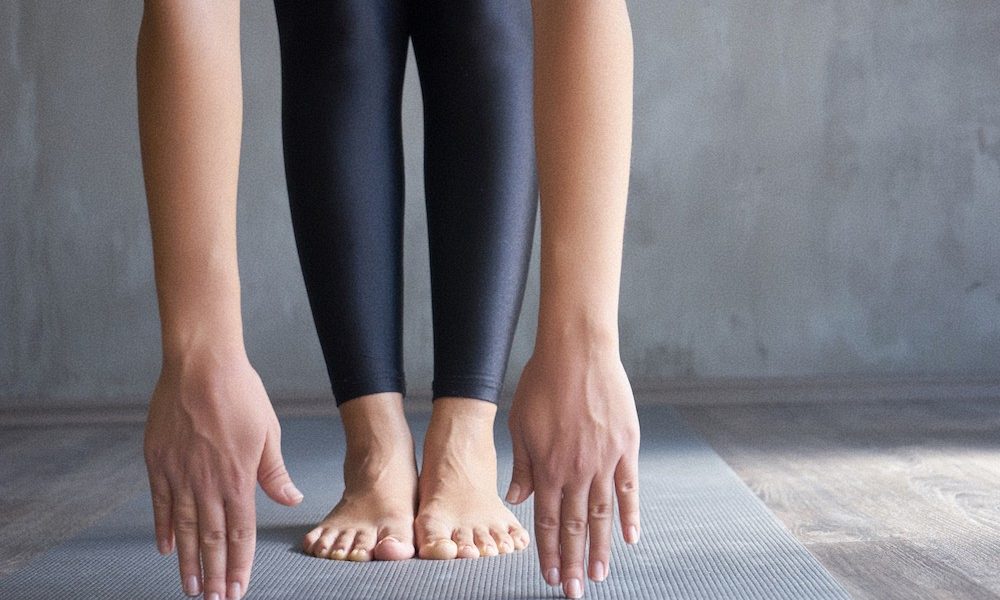Don’t let diet culture claim your right to enjoy exercise. Here’s how you can move your body without worrying about the number on the scale.
BY: SARAH SCHLICHTER, MPH, RD
Exercise is meant to be a pleasurable activity, yet diet culture has molded it into a “must-do” for those on a pursuit to weight loss, touting it as the golden solution to all health problems. This is because our culture praises thin bodies and six-pack abs, and harmfully encourages eating less and exercising more as the means to get there.
Viewing exercise through the lens of weight loss isn’t practical or helpful, though, since we know that weight cycling is worse for our health in the long-term. What would happen if we started to accept that forcing ourselves to spend countless hours at the gym or engaging in unpleasurable exercise wasn’t really healthy for us at all?
Instead, what if we saw exercise for the myriad of other benefits it offers? What if we engaged in exercise and movement we do enjoy so it can be more sustainable for our lifestyles?
The fact is, if you are engaging in exercise you enjoy, you are more likely to reap the physical, mental, and emotional benefits that exercise has to offer.
Understanding your true intentions and reasons for exercising can be an important step in untangling it from the idea that it’s a means of changing your body. In fact, it’s sometimes necessary to stop exercising entirely in order to reevaluate the root motive.
Here are some reasons to include enjoyable exercise in your lifestyle that have nothing to do with changing a number on the scale.
1. It can spark creativity.
There is a great amount of interesting research on how exercise can inspire creativity and the effects it can have on our brains. In short, neural pathways in the brain can change and adapt as a result of voluntary exercise. Part of this is likely due to the endorphins and how exercise can change your mood.
2. It can relieve stress.
Exercise acts as a great stress reliever with all of the positive neuro-transmitters and endorphins that can come from it. However, just like with food, exercise shouldn’t be your only outlet for coping with stress and difficult emotions because it can eventually tarnish your relationship to exercise. Instead, acknowledge how different you feel before vs. after exercise, and take that time to ground yourself and reevaluate what’s bothering you.
3. It can enhance social connections.
Whether you’re trying a new workout class with a friend, meeting the local running group for a morning run, or even walking with a coworker on your lunch break, exercise is a great way to connect with others. We all crave social connection and engaging in a similarly shared interest can help foster that!
4. It can promote goal setting.
Exercise can be a great motivator for goal setting that can transcend to other areas of life as well. Whether it’s a time-, weight-, or distance-oriented goal, putting brain power towards the process of goal setting (and later accomplishing it) can be a great life lesson in discipline. Accomplishing goals that you set out to reach can also boost self-confidence and remind you that you are fully capable.
5. It can promote a sense of self.
If you’re engaging in exercise you truly enjoy, it becomes part of your lifestyle without giving it too much thought. It becomes habitual, and you may realize that you miss exercise on the days you don’t do it. Exercise can be a great way to boost your mood and help you feel like yourself.
6. Exercise can help you see new things.
Whether you’re looking for a workout class to drop into while traveling, or exploring a new city or park by foot, exercise can be a great way to meet new people, see new sites and engage in a new environment. The world is a beautiful place, and being outdoors can be a fantastic way to find the hidden crevices and appreciate nature’s beauty.
7. Exercise can promote flexibility.
Just like food, exercise isn’t black-or-white, nor good-or-bad. You can gain mental clarity and stillness from just 5-10 minutes of exercise. If you set out for a longer workout but cut it short, you will still experience several health benefits as well as practice the power of flexibility in your exercise routine. Having a flexible approach to exercise can not only carry over into other areas of life but can also lead to more enjoyment and less obsession.
Adapted from the original post.
HEADER IMAGE: SIMEON CHATZILIDIS
Sarah Schlichter, MPH, RD is a Registered Dietitian with a Master’s in Public Health, a freelance writer, nutrition counselor and recipe developer. In her nutrition practice, she works 1-1 with athletes and those looking to normalize their relationship with food through an intuitive eating approach. Learn more at www.bucketlisttummy.com.

